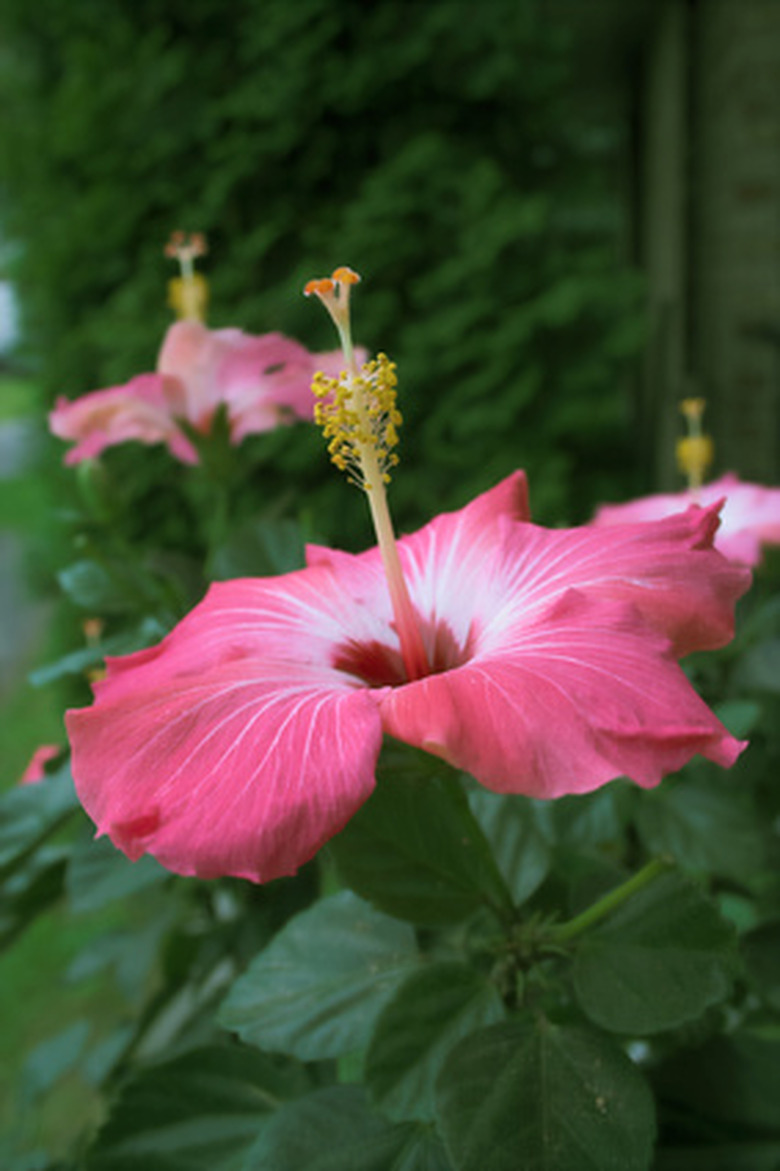Hibiscus Plants & Pets
Hibiscus is a popular perennial plant with large, vibrant flowers. You can plant hibiscus directly in your garden or keep it as a container plant. Despite the plant's beauty, the hibiscus is toxic to some animals. You may wish to rethink owning hibiscus plants if you have pets unless you can be sure your pet will not chew on or ingest any of it.
Identification
Hibiscus plants can grow as tall as 5 feet, but most top out around 1 or 2 feet. They produce many large blooms. The leaves are glossy, and the flower color is usually a shade of red, yellow, pink or purple. Some hybrid varieties produce multicolored blooms. The stamen is long, extending well past the petals. These plants enjoy sunlight but can handle partial shade.
- Hibiscus is a popular perennial plant with large, vibrant flowers.
- The leaves are glossy, and the flower color is usually a shade of red, yellow, pink or purple.
Toxicity
The ASPCA advises that hibiscus is toxic to dogs, cats and horses. The principles responsible for the toxicity are unknown.
Effects
Dogs, cats or horses that have ingested hibiscus may refuse to eat and may have nausea, vomiting and diarrhea, according to the ASPCA. According to the University of Illinois College of Veterinary medicine, a dog that has consumed hibiscus may exhibit bloody vomiting and/or diarrhea.
Treatment
The University of Illinois College of Veterinary Medicine recommends you first contact a veterinarian if your pet has ingested a poisonous plant, such as hibiscus. Your pet may require intravenous fluids, as vomiting and diarrhea can dehydrate pets quickly; your veterinarian also may suggest or administer other remedies to help ease the symptoms. Small dogs (or puppies) and cats may dehydrate much more quickly than larger animals. Don't hesitate calling your veterinarian–treat this as a veterinary emergency.
- The ASPCA advises that hibiscus is toxic to dogs, cats and horses.
- Dogs, cats or horses that have ingested hibiscus may refuse to eat and may have nausea, vomiting and diarrhea, according to the ASPCA.
Prevention
If you choose to grow hibiscus, or if hibiscus is already established in your garden and you don't wish to remove it, you should make it inaccessible to your pets. Keep cats indoors, away from outdoor hibiscus and potted hibiscus; and erect fencing around outdoor hibiscus to keep dogs away. Make sure no foliage sticks outside the fencing where a dog could, conceivably, still get to it.
